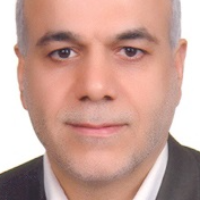Research Methods Curriculum in Graduate Program: An Investigation of the World’s Top Universities Approaches to Design, Implementation and Evaluation
Developing qualified researchers is one of the principal functions of higher education systems in order for the mission of knowledge production and dissemination to be accomplished. To this end, research methods are taught at all levels of higher education systems across a wide range of disciplinary contexts. Honing research skills is a key to educational and career success of students, making them trained information consumers. Hence, developing a relevant, well-defined research method curriculum has become a global concern of higher education systems. Despite its importance, there is a dearth of literature on education and curriculum of research methods, calling for more scientific efforts on the pedagogy of research methods. Therefore, in this study, we examined elements of research methods curricula of graduate programs in the field of education. Particularly, we reviewed the research methods syllabi of graduate programs in the field of education of 10 out of 100 top universities of the world in terms of goals, contents, teaching methods, learning activities and assessment methods. Research questions Which goals do the top universities seek from teaching research methods in graduate programs in the field of education? What are the contents of research methods curricula in graduate programs in the field of education at the selected top universities? Which teaching methods are used in the selected universities to teach research methods in graduate programs in the field of education? Which learning activities are involved in research methods in graduate programs in the field of education at the selected universities? Which assessment methods the selected universities use in research methods in graduate programs in the field of education? Methods We followed a qualitative approach. Implementing content analysis, we analysed several syllabi of research methods of graduate programs at the world top universities. Using purposive, intensity sampling method, we selected 10 universities out of 100 top universities of the world ranked based on Shanghi university ranking. The syllabuses of the most recent courses of research methods in the field of education were collected from the websites of the universities. This resulted in a pool of 13 syllabuses dated from spring semester of 2010 to the fall semester of 2019. We then analyzed the main curriculum elements of the syllabuses; i.e., the goal, content, teaching method, learning activities, and assessment method. Results The most important goals of teaching research method at the selected universities were learning about various research methods in educational research and reviewing the pros and cons of each method; improving research procedural skills including identifying and formulating research questions; enhancing the capability to read and review the literature; promoting the understanding of philosophical foundations of research; improving the skills of planning and doing the research; and enabling students to correct their mistakes in their research projects throughout the course. As with content, the quantitative research methods curricula contained identifying the problem and research questions; research design; research variables; reviewing literature and theoretical frameworks; various types of quantitative research methods; measurement instrument; sampling; experimental design; data collection and analysis; descriptive and inferential statistics; and writing research report. Identifying research problem and questions; different types of quantitative research methods; measurement instruments; and data collection and analysis were the most important topics. Qualitative research methods content included characteristics of qualitative research; types of qualitative methods; research questions; research design; sampling; data collect tools; data analysis and research report among which qualitative data analysis and different types of qualitative research methods were of paramount importance. The syllabuses shared several common subjects regarding both qualitative and quantitative approaches including various classifications of methods and approaches to research; research principles and process; philosophical and theoretical foundations of research; and research ethics, the two latter being the most important issues. The selected universities used combinations of various teaching methods, among which problem-based and project-based learning were the most prevalent method to teach research methods. The curricula involved multiple types of learning activities such as preparing research proposal during semester; assessing and criticizing published articles; team-based and individual-based research projects; data analysis and reporting research findings; writing up an academic article based on the class project; and submitting weekly assignments with respect to various topics including effect size, random sampling, autobiography, obtaining research permission from university ethic committee and undertaking self-assessment. The most important topics were writing a research proposal and reviewing prior studies, respectively. Although the selected universities used mixtures of methods for assessment purposes, the most-emphasized criterion was the quality of the submitted research proposal. Discussion Learning research methods to be able to undertake a research is an all-important educational outcome for students of any discipline including education. Pedagogy developers and teachers should pay heed to the synchrony of all curriculum elements. Taking a balanced approach towards qualitative and quantitative research methods is a must to develop a high quality research methods curriculum. Regarding quantitative research method content, curriculum developers need pay more attention to the subjects of research problem identification; experimental and quasi-experimental research designs; validity and reliability of measurement instrument; and methods of data analysis. As with qualitative approach, providing a deeper understanding of the qualitative research methods; what distinguishes the methods from each other; and their applications in real world should be a vital concern of both planners and teachers. Philosophical and theoretical foundations of research and research ethics are also very important to be covered. Furthermore, active teaching methods are recommended to engage students in real research projects. Finally, process-based evaluation methods, e.g. assessing a research proposal submitted by student, critical contemplation on existing studies, etc., are advised in order to encourage learning.
- حق عضویت دریافتی صرف حمایت از نشریات عضو و نگهداری، تکمیل و توسعه مگیران میشود.
- پرداخت حق اشتراک و دانلود مقالات اجازه بازنشر آن در سایر رسانههای چاپی و دیجیتال را به کاربر نمیدهد.




